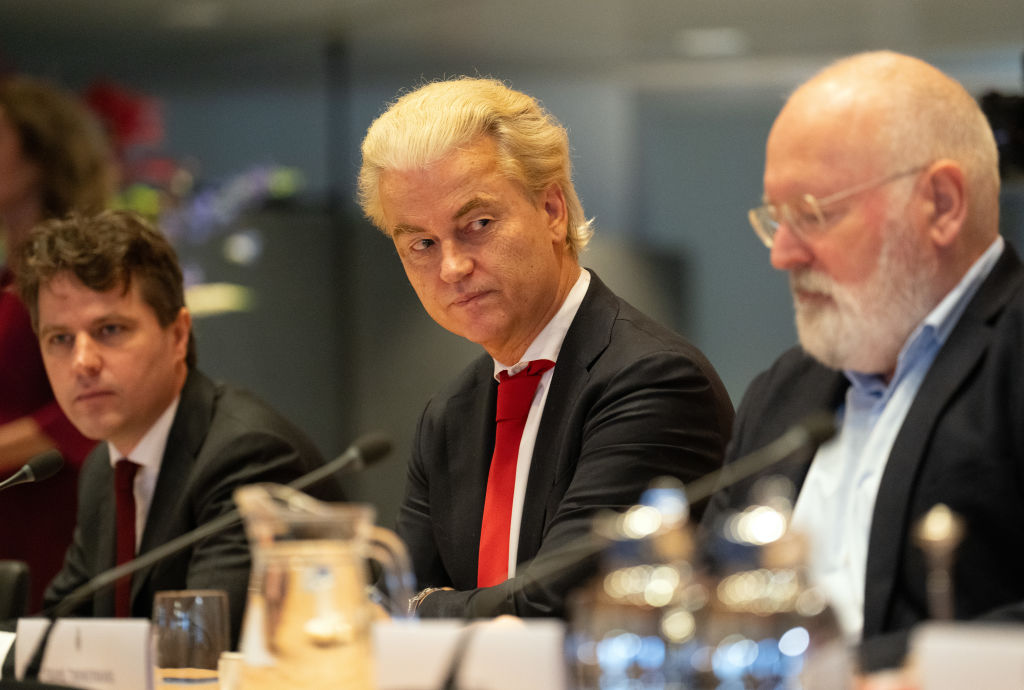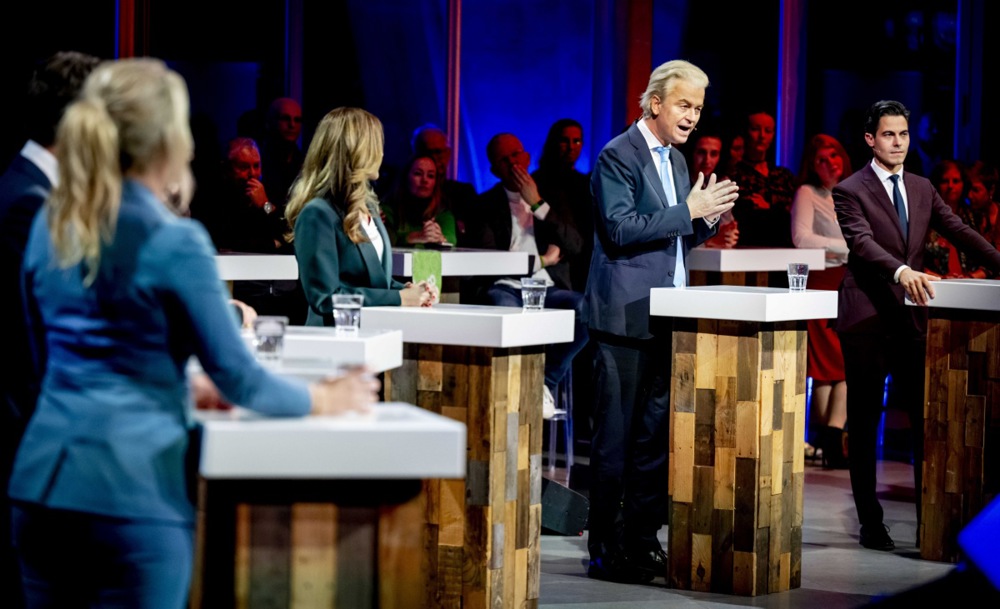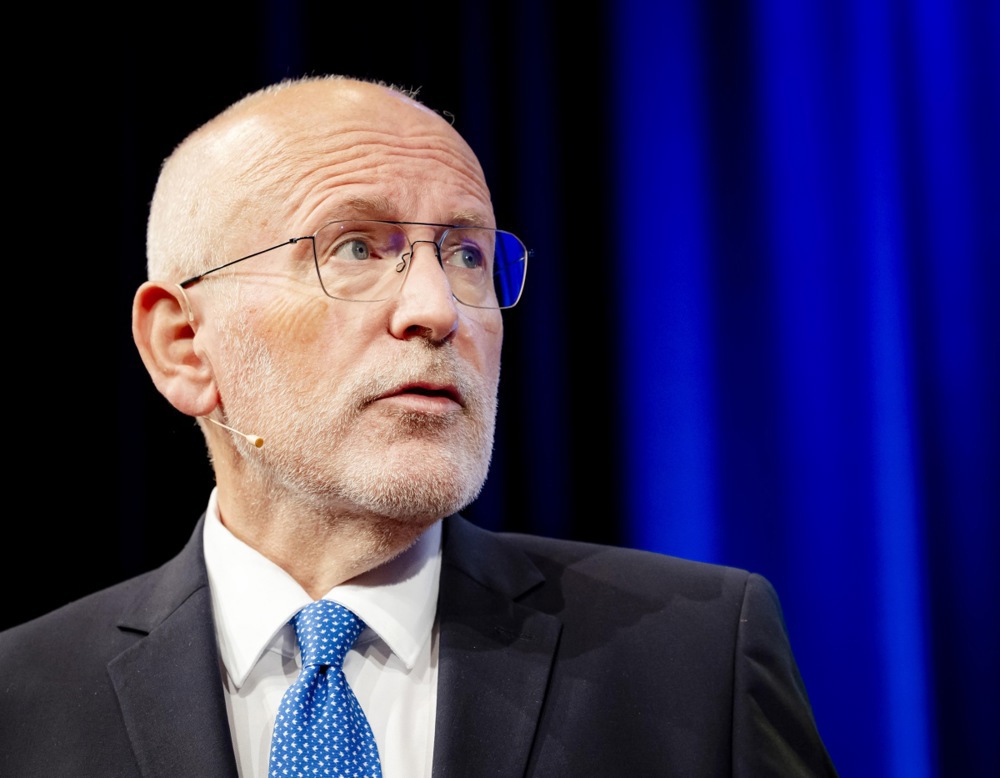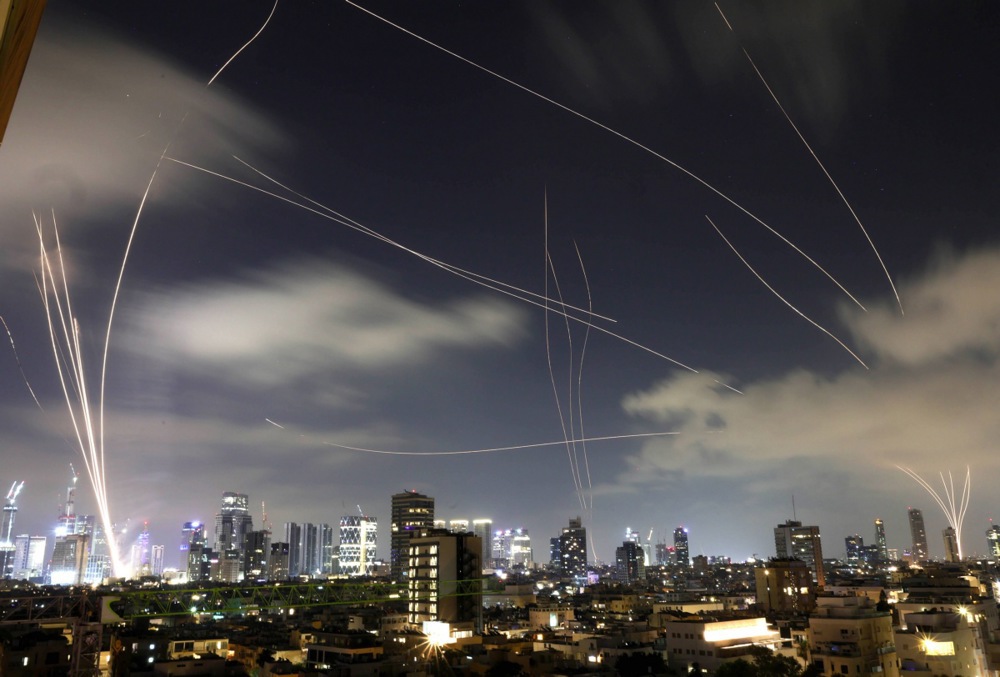In a dramatic comeback, the Liberal Democrats (D66) party has claimed a narrow but decisive win in the Netherlands’ snap general election, eclipsing Geert Wilders’ hard-right Party for Freedom (PVV).
With almost 100 per cent of votes counted, D66 is on course for 26 seats in the 150-seat House of Representatives, equal to the PVV’s projected 26.
On that result, a left-wing government with D66, VVD, Labour-GreenLeft alliance (PvdA-Groenlinks) and the Christian Democratic Appeal (CDA) party, would appear the most obvious, although a more right-leaning one, with JA21 and without Socialists and Greens of PvdA-Groenlinks, is also a theoretic possibility.
D66 won 17 seats more compared to the previous elections, while Wilders’ PVV lost 11.
According to Ipsos I&O polling data, released shortly after ballot boxes shut at 9pm yesterday, D66 had one seat more and PVV one less, but during the count, some minor shifts occurred, and the difference between both parties was only a around two thousands of votes.
In the Dutch system, the biggest party usually gets the right to form a government.
This surge represents a significant turnaround for D66, which plummeted to nine seats in the 2023 vote, battered by perceptions of coalition gridlock and unfulfilled promises that inadvertently fuelled Wilders’ populist ascent.
With the latest result, D66 leader Rob Jetten, the 38-year-old ex-climate minister, is set to build a new coalition.
His party campaigned on housing, education, health, green energy and climate.
Jetten, who could become the country’s youngest-ever prime minister, said at his victory speech – where Dutch and EU flags were prominently waved: “We did it; we scored our best result ever and might be the biggest party in the country.”
He congratulated all parties who did well and offered his sympathies to Frans Timmermans, the former European climate czar of the Labour Party (PvdA) who announced his resignation following ballot exit polls.
Jetten said the Dutch public had turned a page, away from negativism.
He stressed that many people voted for other parties and said he wanted to be there for them as well. “We have to think and act big, so the Netherlands can move forward again.”
Jetten said the political middle had to work together again, to form a stable and ambitious, positive majority.
The politician also appeared on popular TV game show De Slimste Mens Ter Wereld (The Smartest Person in the World) where he made it to the finals, a feat Belgian Prime Minister Bart De Wever also achieved and, according to many, was one of the reasons for his rise to prominence.
Leader of the second-biggest party PVV Geert Wilders said in an initial reaction on X: “The voters have spoken. We had hoped for a different outcome but we stood our ground.
“We are more combative than ever and still the second-largest, and perhaps even the largest, party in the Netherlands.”
His party had pulled tout of the previous ruling coalition, saying his partners prevented it from carrying out its ambitious migration reforms.
But other parties and the wider electorate saw damaging instances of what they felt was impotence and incompetence.
Timmermans’ alliance of Socialists and Greens lost five seats, ending up with 20, making his group now the fourth-largest in the Dutch parliament, behind the VVD, which lost two seats, landing on 22 seats, outperforming bad polls.
Timmermans congratulated D66 for its win, although he said he felt that the party shifted too far to the Right.
He went on to admit he was disappointed with his own party’s result and that he failed to convince people to vote for its agenda. He said he would take full responsibility.
“You granted me the biggest honour of my life by making me list leader,” Timmermans said. “I will cherish it for the rest of my life.
“But it is clear that I could not convince people to vote for us, so I will take a step back and hand in my leadership, with a heavy heart, to other people.”
Another clear winner was the centrist CDA, surging to 18 seats, 13 up compared to 2023.
“Two years ago, we would never have dared to dream of this,” CDA leader Henri Bontenbal said.
“We started with five seats and now, according to the exit polls, we have 19. And how did we do it? The best thing about this result, in my opinion, is that we achieved it with a truly Christian Democratic message.
“We have remained true to ourselves throughout this campaign.”
The party appeared to have regained trust among its own electorate which had switched to Pieter Omtzigt’s NSC Party two years ago. That formation lost all of its seats, down from 20.
The right-wing JA21 party jumped from one seat to nine.
“You’re not supposed to swear in church, but … holy shit!” JA21 leader Joost Eerdmans said at the Grote Kerk in The Hague.
“In 2023, we said ‘we’ll be back’. And we are back,” Eerdmans said. “The prizes are handed out at the finish line and we’ve just won the grand prize.”
Another winner was the Forum for Democracy (FvD) Party of firebrand Thierry Baudet. Under the leadership of Lidewij de Vos, the FvD climbed from three to seven seats.
De Vos said it was “a fantastic night, what a victory”.
“This is a clear signal from voters that the Netherlands needs a change of course,”De Vos said. “Tonight we celebrate, but tomorrow our work begins. There is still a lot to be done. I feel honoured and proud. This victory belongs to all of us,” she added.
The Farmer-Citizen Movement (BBB) lost one seat, dropping from four to three.
Party leader Caroline van der Plas reacted with disappointment to the exit poll. “Not an easy result. It feels awful,” she said. Van der Plas did add that the result proved that her party was not a flash in the pan.
The snap poll was precipitated by the then-prime minister Dick Schoof’s government implosion in September, when Wilders yanked the PVV from the uneasy four-party alliance over stalled migration curbs.
The outgoing cabinet, the most Conservative in decades, faltered on ambitious pledges for border controls and affordable housing, exacerbating a crisis with a shortfall of 400,000 homes and rents spiralling.





